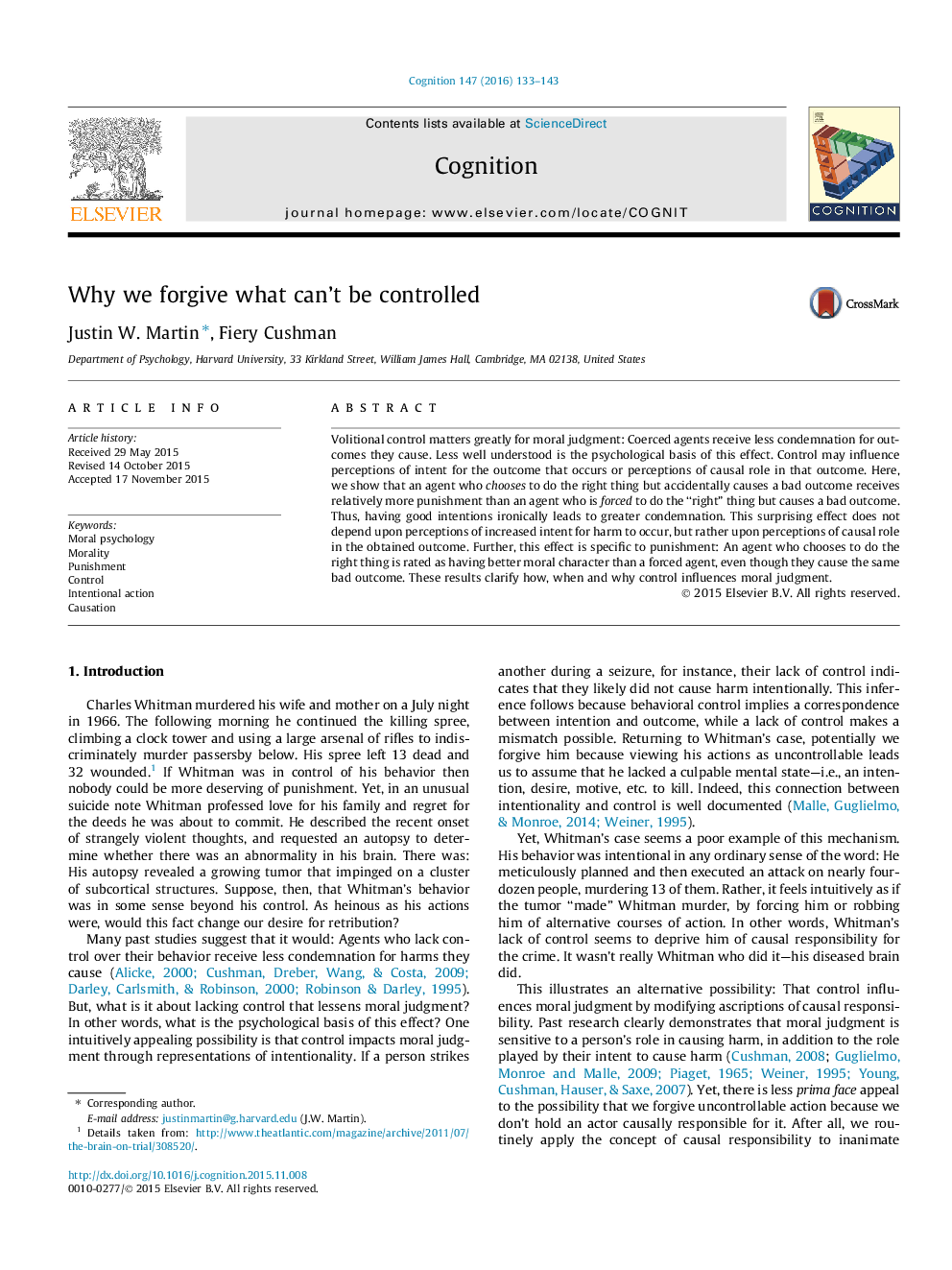| Article ID | Journal | Published Year | Pages | File Type |
|---|---|---|---|---|
| 7286344 | Cognition | 2016 | 11 Pages |
Abstract
Volitional control matters greatly for moral judgment: Coerced agents receive less condemnation for outcomes they cause. Less well understood is the psychological basis of this effect. Control may influence perceptions of intent for the outcome that occurs or perceptions of causal role in that outcome. Here, we show that an agent who chooses to do the right thing but accidentally causes a bad outcome receives relatively more punishment than an agent who is forced to do the “right” thing but causes a bad outcome. Thus, having good intentions ironically leads to greater condemnation. This surprising effect does not depend upon perceptions of increased intent for harm to occur, but rather upon perceptions of causal role in the obtained outcome. Further, this effect is specific to punishment: An agent who chooses to do the right thing is rated as having better moral character than a forced agent, even though they cause the same bad outcome. These results clarify how, when and why control influences moral judgment.
Related Topics
Life Sciences
Neuroscience
Cognitive Neuroscience
Authors
Justin W. Martin, Fiery Cushman,
